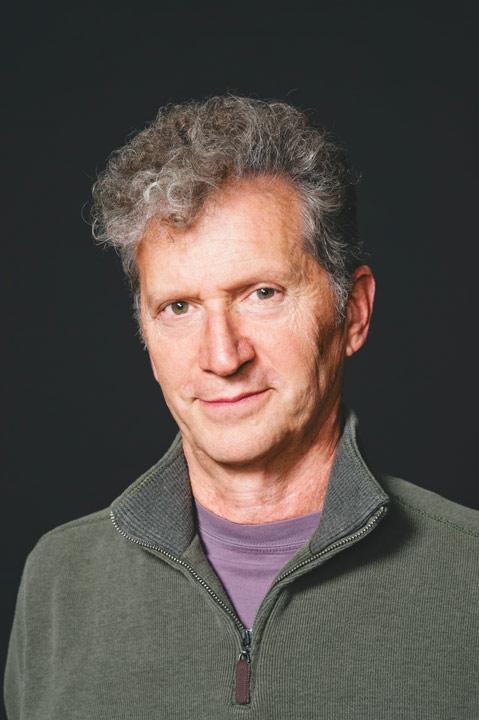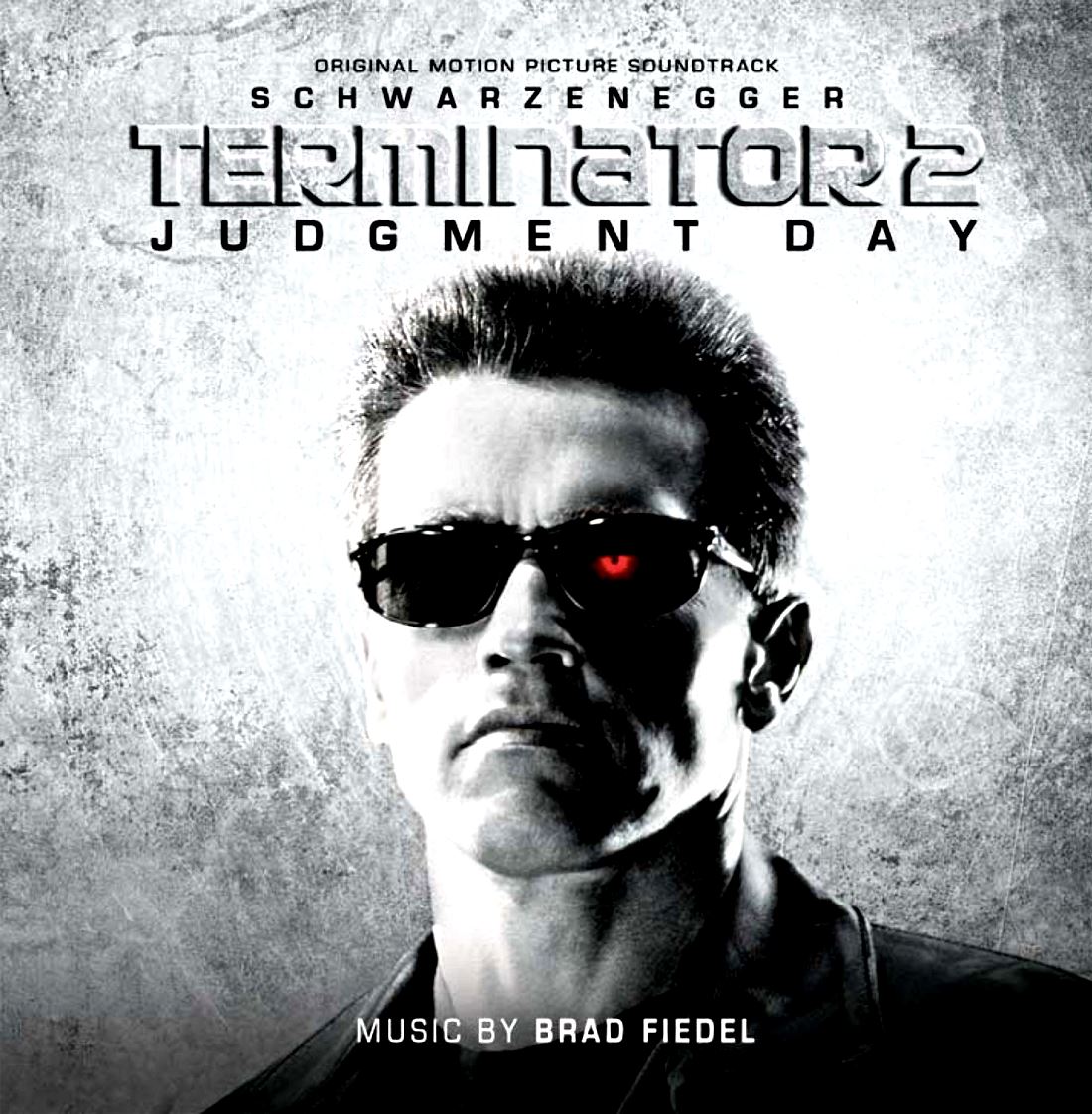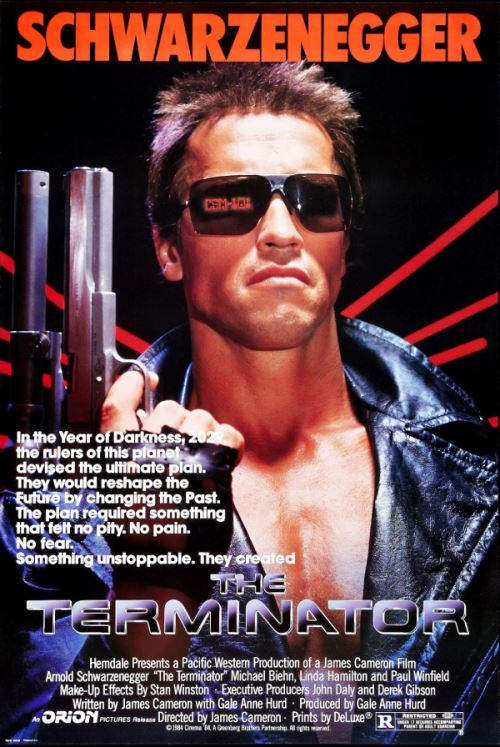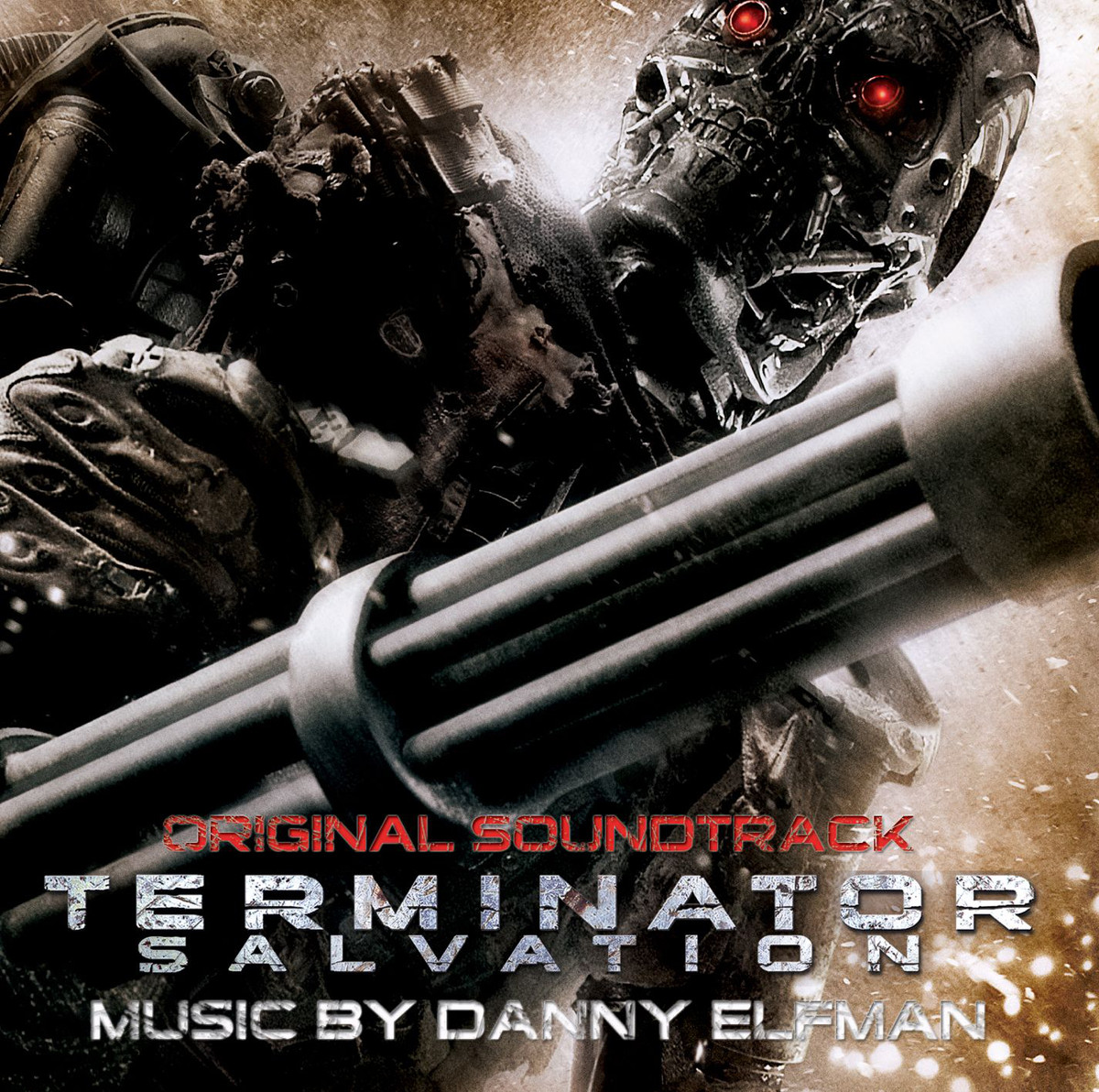Interview with Brad Fiedel, legendary composer of Terminator soundtrack
 Hi, Brad.
Hi, Brad.
First of all I’d like to thank you for attention and conversation with us. Besides, in the name of all your fans I’d like to thank you sincerely for your creative work, which inspired many people all over the world during all these years. I am honored to talk to you, to be a little bit closer to a maestro like you. We have been looking for you on the Net for about 10 years.
I read some of your recent interviews. Despite the fact that you have already provided answers to some important questions, we will try not to repeat them or to consider a little deeper. We’d like to know something about the beginning of your musical path. You wrote you hadn’t studied composition and started to expand these skills seriously much later, when you were already involved in creative work. But when and how did your musical path start? Was it a musical instrument as a gift from parents? Did you play in a band when you were younger?
I was born into a very creative family. My mother was a modern dancer and studied with Martha Graham. My dad was a musician who played and listened to many different kinds of music from way out Jazz to classical and I remember being very excited by a Bartok piece for percussion and Orchestra that I think made a big imprint on me that later influenced my film writing. He also did some composing for modern dance groups and later wrote operettas for children.
They started a school for the creative arts on Long Island in New York State. That's where i grew up. I was probably still in diapers when my dad had me improvising at the piano. Later, I rebelled from his teaching and taught myself guitar and started forming rock bands and writing songs when I was 13 years old. 
Tell us something about your tastes in synth environment. How did you choose them for your music? As I understand, the synths like Prophet 10 were almost a prototype then. Are you chasing novelties in musical technologies for maximum capability or working on existing stuff?
I am now in a completely different place as far as technology is concerned. I enjoy writing and performing songs on acoustic piano. For many years I would always buy the newest synths and other technology especially when I was about to start a new project. The energy of playing with and discovering the capabilities of these new pieces of equipment often brought something new to a score I was working on and helped me not repeat myself too much as far as sounds go.
There was a point where there were always so many new programming methods to learn for each new generation of keyboards and I was getting a lot of projects on short schedules that I found it too distracting and I let go of some of the deep experimentation with sounds and focused more on the heart of the compositions.
Now, I'm mostly concerned with creating dramatic musical projects (like my one man musical "Borrowed Time") where I am focused on the meaning of the songs and the actual performance of them in a live setting. Quite a refreshing change for me. I still do have computers in my studios for creating demos and some orchestrated pieces.
I found the warmth of the original sound came through even when I altered it into an unrecognizable shape. I think this is why many of my "electronic scores" had a warmer feel to them.
Acoustic piano, electric violin (played amazingly by my friend Ross Levinson), Prophet 10, Emulator 1, Oberheim keyboard, drum machine and sequencer (linked together). Recorded onto a 2" 24track recorder and mixed to a 4 track 1/2 inch recorder bot by Otari. Mixed on a sound workshop board with a simple automation system.
At this time, samples rule the world and original sound is not so frequent guest in music. We know that you support original sounding, but how do you obtain it?
I'm really removed from that part of creating music now. For many years I used a Fairlight CMI, I often took samples of real instruments and reshaped them and morphed them into something different for each score. I enjoyed working with organic sounds of varying sourced, recording them and then changing them. I found the warmth of the original sound came through even when I altered it into an unrecognizable shape. I think this is why many of my "electronic scores" had a warmer feel to them.
Terminator soundtrack has an interesting story. Rumors are in the air that “the very metallic beat in the main theme” was created by hitting a microphone with a frying pan. Is it true? If yes, how did that dawn on you and how about microphone condition after that? If this is a myth, what kind of sound is this then?
I wanted a very powerful clank sound and anvil sounded too high pitched. I ended up hitting a heavy cast iron frying pan with a hammer and recorded it with a simple microphone. The microphone distorted the sound a bit and that made it an even bigger sound.
You have many works besides the Terminator, but everyone wants to know all about the Terminator in the first place. I think that it is quite possible, that Terminator is just the most popular, memorable and innovative work of yours. After the Terminators you will remain as “the guy, who wrote music for Terminator” forever. As you said, there were directors who wanted you to create that cool electronic music again and again.
For example, Linda Hamilton refused a role in Terminator 3 because she did not want to be a one role actress. Maybe you feel something similar? How do you feel about this creative period? How important is it for you?
I really did my best never to imitate myself over and over again. Though I became known for doing electronic scores, even though I had done a lot of acoustic and orchestral scores, there is a pretty big variation available within that kind of score. Even my scores for the two Terminator films sound very different from each other. My main concern was that I would only get to do certain action or sci-fi films and I turned down a number of projects that would cause me to repeat myself. Doing comedies and dramatic films as well as made for TV films allowed me to have big variations from one score to the next. This was good for me as a composer even if some of these very different scores were less known by the public.
In the end, regardless of the wide range of work I did, the opportunity to have something in my body of work that is as widely known as my theme for the Terminator is something for which I'm very grateful.

The Terminator soundtracks have incredible ambiance which gives the audience so great experience. At now we don’t know at all what the Terminator would look like without music by Brad Fiedel. The first soundtrack is so damn scary, especially with Arnold Schwarzenegger’s scratched face on background. It was the big trial for my nerves in childhood. It is always pretty hard to name some favorite composers and music, but what were you inspired by in work on Terminator? Were you scared by the Terminator music like the movie audience was?
Truthfully, I was inspired by the film that Mr' Cameron made. The way it looked and the story, as opposed to any other music. This is often how I most liked to work. Just get the film inside me and see what came out musically. In True Lies I must admit that Leonard Bernstein's dance music from West Side story was an influence.
Music from Terminator 2 was also great, but it’s more adult and has more dramatic lines. Was Terminator 2 soundtrack also your war against the machines or did those machines work for you? What differences were there between work on Terminator 1 & 2? Which synths did you use? How did the computer help you at that time?
In general, I was lucky to come of age as a composer just as so many breakthroughs were being made on the technology side of music. It was an exciting time and I feel that excitement became part of my music.
The advent of midi and the ability to sync devices together to follow a master composition was a big liberation creatively. This made certain aspects of Terminator 2 possible. Partially because of the Fairlight computers I was using (which held many of the sounds as well as the composition).
It also allowed me to be very ambitious about the sounds and the time signatures in spite of the fact that there was very little time and the film was always changing as the visual effects were perfected. Because the composition was done in these computers I was able to accommodate last minute changes in the film. It is much, much easier now, but this was the beginning of a new way of working on music for film.
The only attraction after the Terminator 2 was T2-3D and then James Cameron left this franchise. But… Terminator 3 came out in 2003. You wrote that your only work on T3 was some arrangement music to movie promotion. We also saw Terminator 4 not long ago. As we understand, nobody asked you to write music for T3 and T4. Is it right? I remember some promos for T4, where McG says that he found you and talked about T4 score. Please, make the entire story clear.
I haven't told this story in the past, but since a lot of time has gone by and you asked me directly, I will do my best to relate what happened (of course this is only my subjective memory of the experience).
I was in Mexico designing and building a small hotel/surf retreat when my agents let me know that McG wanted to talk to me about the score for T4. This was a big surprise, I was hesitant because I hadn't been in the world of film scoring for over eight years, but I said I would talk to him. We spoke on the phone and he was very respectful and enthusiastic. He really sold me. I said I would consider doing the music, but I didn't want to leave what I was doing unless he was serious about hiring me, that I didn't want to fly to LA for an "audition". He said he understood and they flew me up to meet with him and screen the film. We had a great meeting and seemed very simpatico. Then he screened the film for me without any temp music at my request which I really appreciated.
Frankly, I came out of the screening less than totally inspired by what I had seen, though with a feeling that I could make a contribution and was I ready to go to work on it. I spoke positively and about the film, but I did mention to McG a few areas I had questions about and gave him some constructive ideas of how I thought the music could be helpful. He continued to be very friendly and asked me to stay in California and he would call me shortly. I never heard from him again. Nor did he answer my calls.
Have to admit, I was pretty shocked. You would have to ask him why he decided to hang me up like that with no communication.
Anyway, I waited for a few days and then went back to Mexico to complete my project there, more firmly convinced than ever that my choice not to work as a composer for hire in Hollywood was a good one for me.

Damn, it so disgusting and so sad! I have tears in my eyes... I can't believe that you were thrown out so badly! I don't know… World turned upside down for me.
I understand your response, it was a painful situation. But, in the end, I have to take responsibility for the fact that I allowed myself to be seduced by the idea of coming back and working on a project where the director really seemed to have a lot of respect for me and the previous work I had done on Terminator. I did not listen to my own intuition and put myself in that position.
There is nothing intrinsically wrong with the entertainment industry. There are many wonderful, creative, trustworthy people involved. I was lucky throughout the great majority of my twenty-five years as a film composer to be treated with respect and given all kinds of creative freedom.
There was a time right after completing True Lies when my inner voice told me to move on into other creative areas, but it was hard to let go. It took me five years to finally listen to that voice, and the incident with T4 was a good affirmation that I had made the right decision.
If the T4 score were your score, would you think about what kind of music you can write to this story in the future? And if the T4 story had a happy ending with you, would you try something else? Or it was, somehow or other, just one-time event?
I don't really want to hypothesize about the music for this story in the future. Others will do their best to carry the franchise forward and I wish them the best. I'm glad that I got to work with James Cameron on the first two Terminators. I'm also gratified that people appreciate my contribution to those films.
I think T4 would have been a one-time event because of my connection to the franchise and my knowing that the fans would have appreciated having my music back in the story.
Now, many years after your last work on films, you do some surfing stuff, but not quit music at all. Tell us, how does your musical studio now look like? Do you use some rare synthesizers from the past like Prophet 10? Which PC do you have?
My studio has a grand piano, some Apple computers, a projector and a large screen. It's a beautiful space with a high window where I can look out at some very tall cedar trees.
You mentioned that you left film industry, but you are opened for good offers. James Cameron does not make the Terminators, but he’s making Avatars.
Isn’t it the project you like? Does James talk to you about music for Avatar? Would you like to write music for Avatars?
Composing music for other people's films is no longer an interest of mine. I think it is a wonderful line of work, and a good score makes a huge contribution to the film, but it's just not what I want to do any more. I was very happy to get to work on the Terminator films and True Lies with Mr. Cameron and enjoyed seeing Avatar purely as a member of the audience.
Our page is also about game music and we’d like to know if someone offered you to write soundtrack for the game. Do you like this idea? Do you play some games? If yes, which games do you like and which music do you remember?
I'm not a game person (yet).
How do you like the Terminator universe entirely? What do you think about doomsday theories and, particularly, about war of the machines on the Earth?
I think we are facing a lot of choices of how we might abdicate our human tasks and responsibilities to machines. These are things that creep up on us and before you know it we start to forget to have face to face human interaction because we are so used to texting etc. Also, the use of machines to gather such a huge amount of information on what everyone is doing, saying, where they're going etc. I think there are also other ways in which the use of drones and other ways machines can make us feel less responsible for killing people.
If we are not careful, we will not be far at all from the Terminator universe becoming a reality.
We know that you wrote the music for the Light Storm Entertainment logo. I don’t remember where I saw this logo, maybe it’s pretty rare, but some guys got the video from True Lies bonus materials. Is this music yours?
Yes that is my music. It is actually derived from a cue I wrote for the True Lies score. We recorded it with full orchestra.
Some game and movie composers write solo albums. Do you have plans about your solo album? Perhaps we can’t see Terminator 5 with James Cameron and Brad Fiedel, but your solo album would be the greatest gift to your fans from all over the world.
I am continuing to write music. Mostly in conjunction with my original projects. I may write and release some music some time on its own.
Listening to soundtracks without the picture is a matter of taste. As for me, I can periodically turn on some Desert Suite, relax and feel nostalgic. Do you listen to your music the same way?
Truthfully i very rarely listen to my music separate from the films. I was so determined to do the absolute best thing to support every moment of the visual and story, that I don't think a lot of my music makes great listening away from the images. There are a few exceptions, but ironically most of those scores that I might enjoy listening to were never released.
For example Rasputin, which I did for HBO and Eden which was a Sundance supported independent film. Some of True Lies like Escape from the Chateau isn't bad listening.
Surfing is totally unfamiliar to me. Is music about work and surfing about relaxing for you? Or is this all just equivalent creative rest?
Surfing is something I got into just as I was moving away from the Hollywood scene. I enjoy it because it is challenging on many levels and very immediate. You are on the wave or not. It is very clear when your fear keeps you from doing what you intended.
In art there is often a question about how it's working. Either you are presenting your work to someone for their approval or (even worse sometimes) you are creating for yourself and have the hardest boss of all :)
It is also wonderful to be in nature after spending so many years inside of studios with a lot of machines.
You have new musical show "Borrowed Time". Do you have plans to come with this to Europe at all?
I would love to bring "Borrowed Time" to Europe! It will travel easily. When I perform it I only really need a rear projection system and a grand piano. You can get up to date on what I'm doing and see a trailer of Borrowed Time and hear some of the songs (and contact me) through bradfiedel.net
Do you feel any lack of movement in music now? Do you miss the time when you worked in film industry?
I don't believe there is a lack of movement. Sometimes when I hear a great score connected to an inspiring film, I miss being a part of it all.
Finally, can you give any advice to musicians who are just starting out?
Find what is in your musical heart and stick with it. Work very hard to make what you do as good as possible. Do not try to do whatever you think will sell because that is always changing and the audience can usually tell when something is being done just for the money.
Thank you very much for your time. We are waiting for your new music either in films or solo, but we wish you health and success in any case.
Thank you for what you are. You'll always be in our hearts.
Thank you very much for your thoughtful questions and a chance to share my thoughts.
Interview was composed by Flamberg.
- Info about Brad Fiedel
Related:















